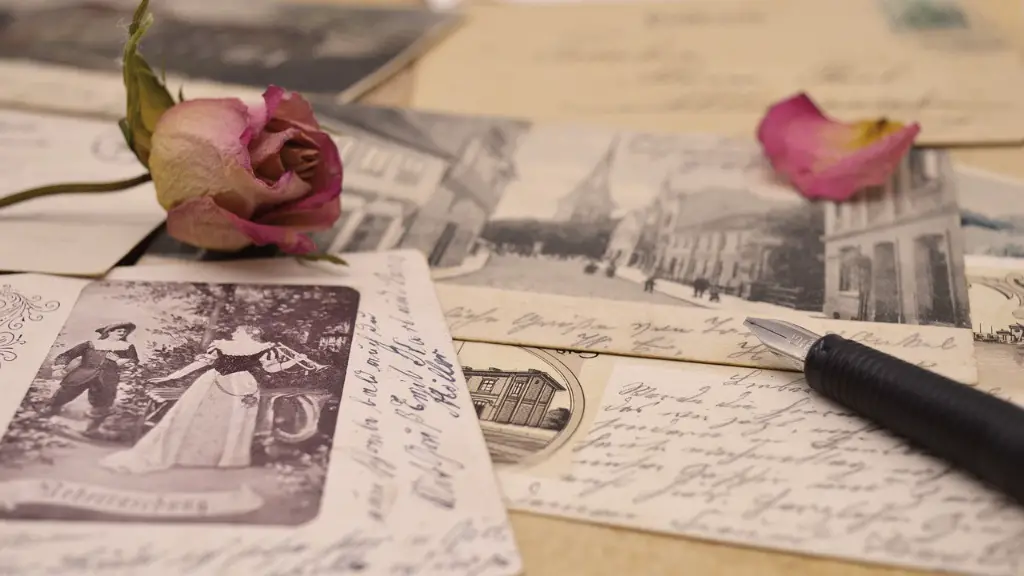Poetry is a powerful and beautiful way to express emotions and share experiences. Writing poetry, however, requires skill and practice. Fortunately, it is possible to improve one’s poetry writing skills with deliberate effort and dedicated study. Here are a few tips to help take one’s poetry writing to the next level.
1. Read and Study Poetry
The most important part of becoming a better writer is to become a better reader. The more one immerses themselves in poems, the better they will be able to understand the mechanics of the craft. One should familiarize themselves with the work of other poets, study their techniques, and analyze why certain ideas and words are used. This will give them the language and experience necessary to know the basics of crafting good poetry.
2. Learn About Poetic Form and Structure
It is essential to understand the forms of poetry, as well as the structure of poems. Studying the different types of meters, stanzas, and devices can help create a strong foundation in the art of poetry. It’s also a good idea to practice writing in specific poetic forms to really get a feel for how they work.
3. Examine Language and Let Imagination Take Flight
Exploring language is a great way to start crafting well-written poems. One should strive to choose the right words to convey a certain emotion or to express an experience. This will help bring life and depth to the poem. In addition, taking the time to let one’s imagination run free can be highly beneficial for coming up with creative ideas for poems.
4. Alternate Rhyme and Free Verse
Trying out different techniques helps stimulate thinking and is a great way to practice writing poetry. Alternating between rhymed and free verse will help establish a range of skills and make the writing more interesting. Additionally, it is important to experiment with different types of syllables and sounds which can give a poem a unique rhythm.
5. Experiment and Follow Inspiration
In order to really explore and make progress in writing poetry, one should try to write often and take risks. Although it can be intimidating, one should try to push themselves to write something original and out of their comfort zone. Additionally, it can be helpful to jot down ideas as soon as they come to mind, even if they are just brief sketches.
6. Join a Writing Group
Seeking feedback and engaging with other writers is a great way to grow as a poet. Joining a writing group provides the opportunity to listen to other poets and to receive constructive critique. It is also a great way to stay inspired, as one can gain a new perspective on writing and brush up on important skills.
7. Utilize Online Resources
There are many online resources available to aspiring poets. There are websites and blogs full of tips on poem structure and poetic devices, as well as numerous online writing forums and communities. One can also find plenty of online workshops and courses that offer guidance on improving their writing.
Practice & Revise For Improvement
The most important part of improving one’s poetry writing skills is to put in the effort and practice. Writing a lot and striving for improvement will help to fine-tune the craft. It’s also a good idea to take the time to read back through one’s own work and revise it, as well as to keep a notebook for writing ideas. This will allow for constant progress.
Develop Your Own Style
Aside from improving skills, one should strive to develop a unique voice and style. Although it is important to study famous poets and their techniques, it is equally important to not imitate and to craft something that feels organic and true to themselves. Taking the time to discover what works and what doesn’t, and to pay attention to the details of one’s own writing, will help realize a personal style.
Be Patient and Have Fun
Above all, when it comes to practicing poetry it is important to be patient with oneself and to have fun with it. Writing should come from the heart and it is all about exploring possibilities, being creative, and, most of all, enjoying it. With dedication and dedication, one can make strides to become a better poet.
Explore Symbolism and Metaphors
Symbolism and metaphors can be powerful tools for expressing emotion in a poem. Taking the time to research symbols and come up with interesting metaphors can be a great way to add depth and intrigue to a poem. Additionally, reading and analyzing poetry that incorporates both of these techniques can be a great way to learn how to use them effectively.
Use All Five Senses to Create an Image
Writing a vivid poem means using all five senses to create an image and tell a story. Good poetry should be able to engage the reader by evoking smell, taste, touch, sight, and sound. Thinking about and using sensory language can help add another level of depth to the poem and create a more vivid and engaging experience for the reader.
Revise, Edit, and Engage in Peer Feedback
Revising and editing are essential steps in the process of crafting a poem. One should strive to make sure that the poem is clear and concise and that it captures the intended meaning. It can also be helpful to take the time to engage in peer feedback, as it is an effective way to gain an outside perspective and strengthen the poem.
Identify Your Strengths and Weaknesses
Becoming a better poet often starts with understanding one’s own strengths and weaknesses. Taking the time to analyze one’s writing and truly assess what works and what doesn’t, can help make progress in writing. Keeping a personal journal of ideas can also be helpful in this process and can be a great tool for self-improvement.



